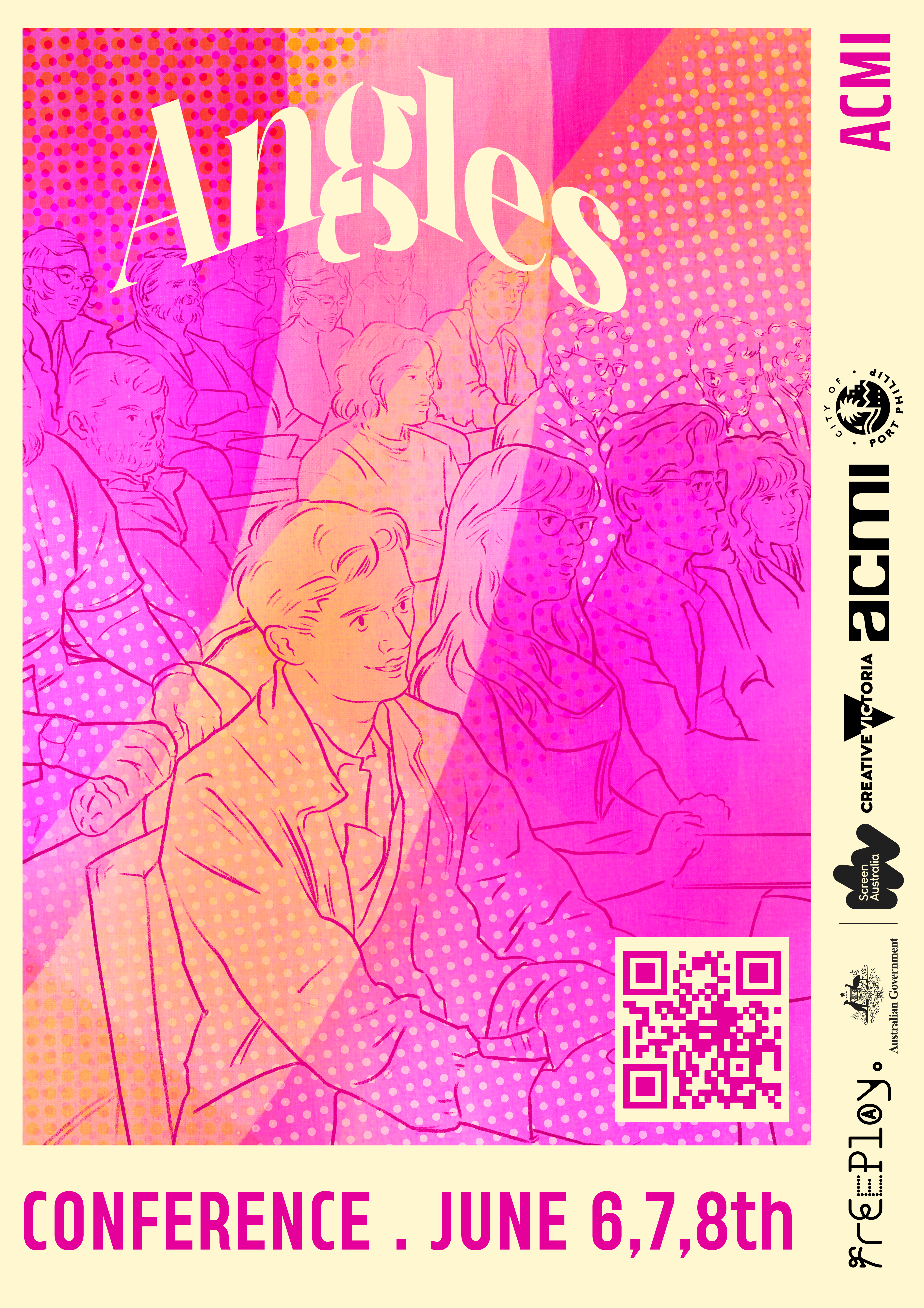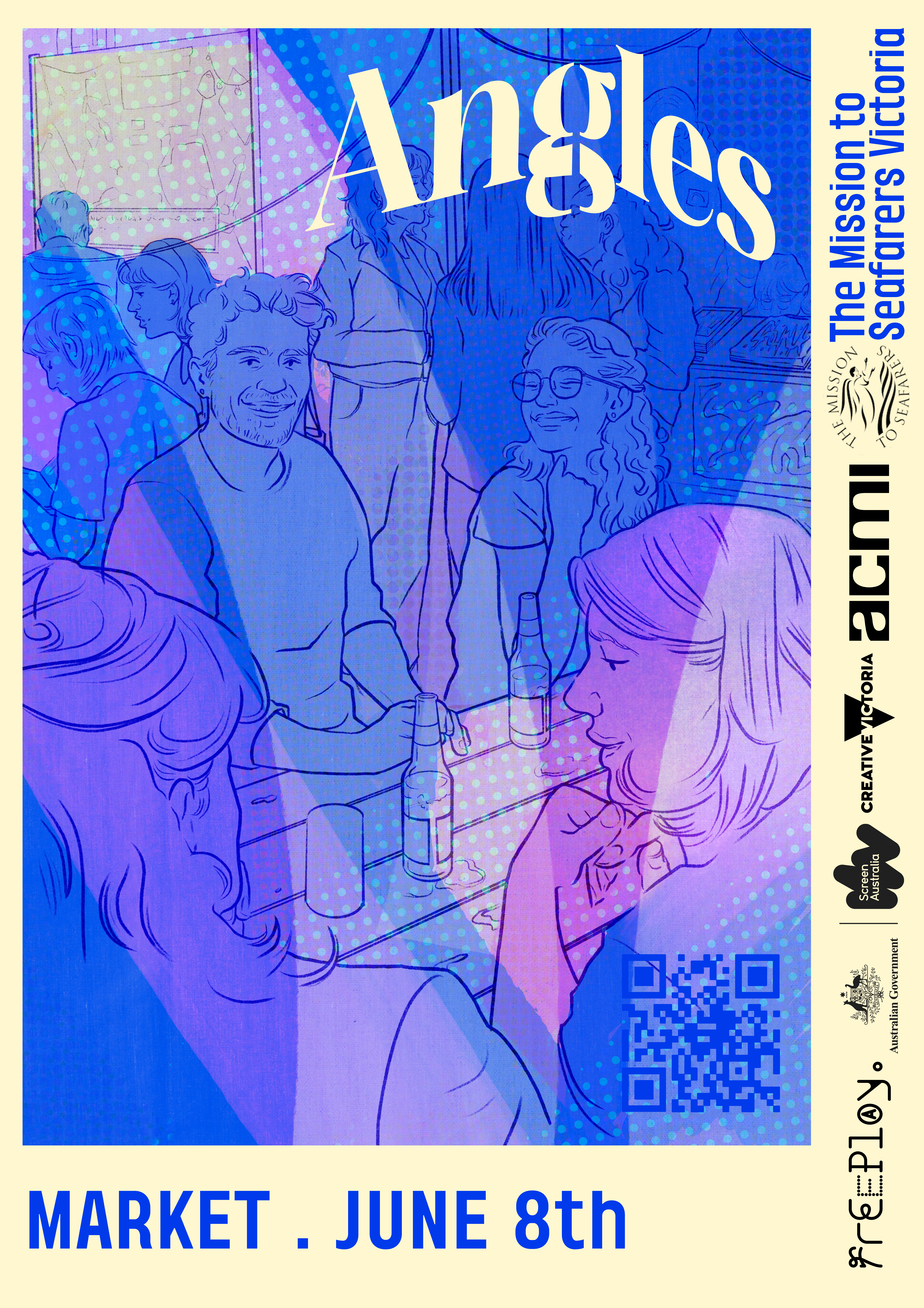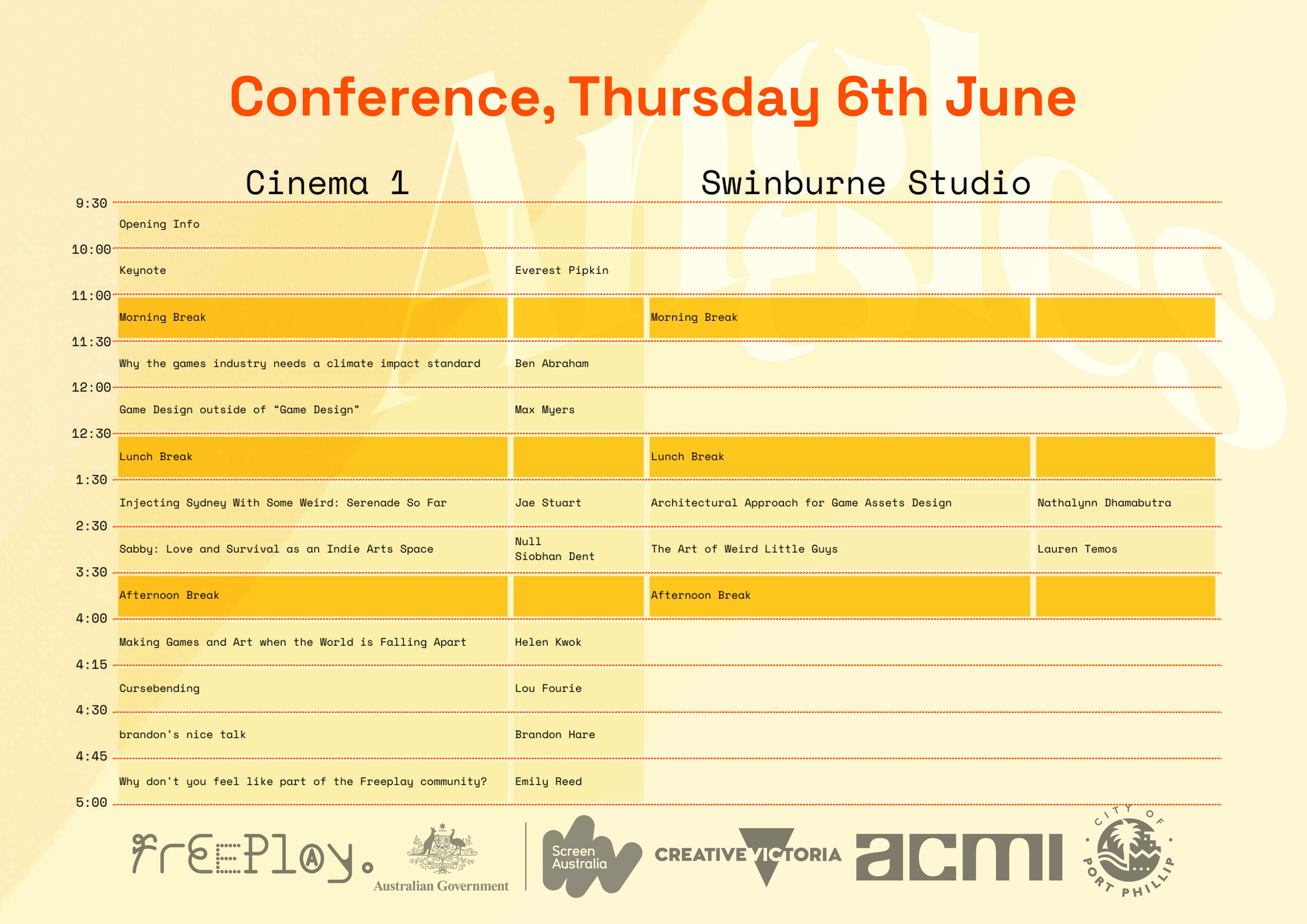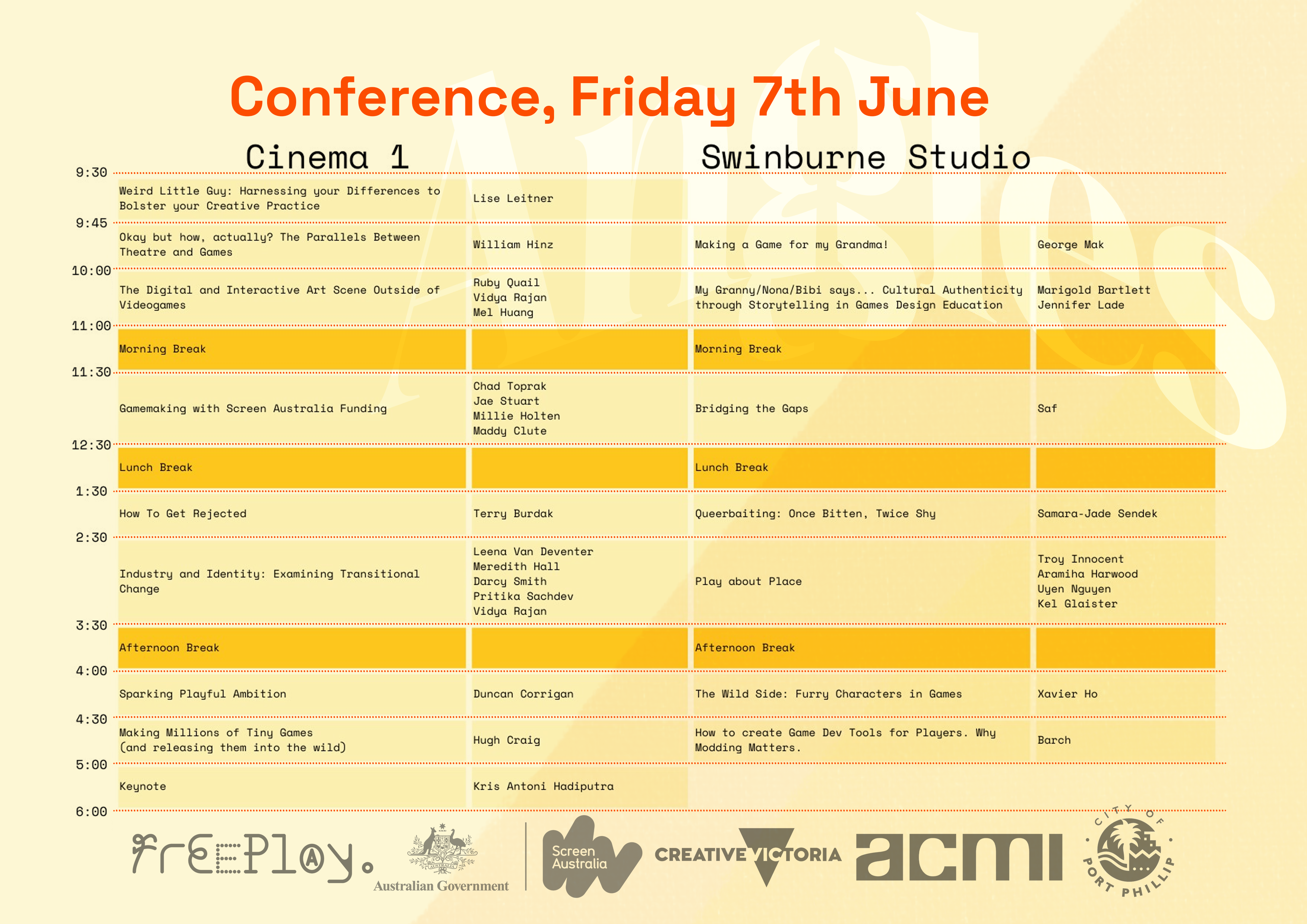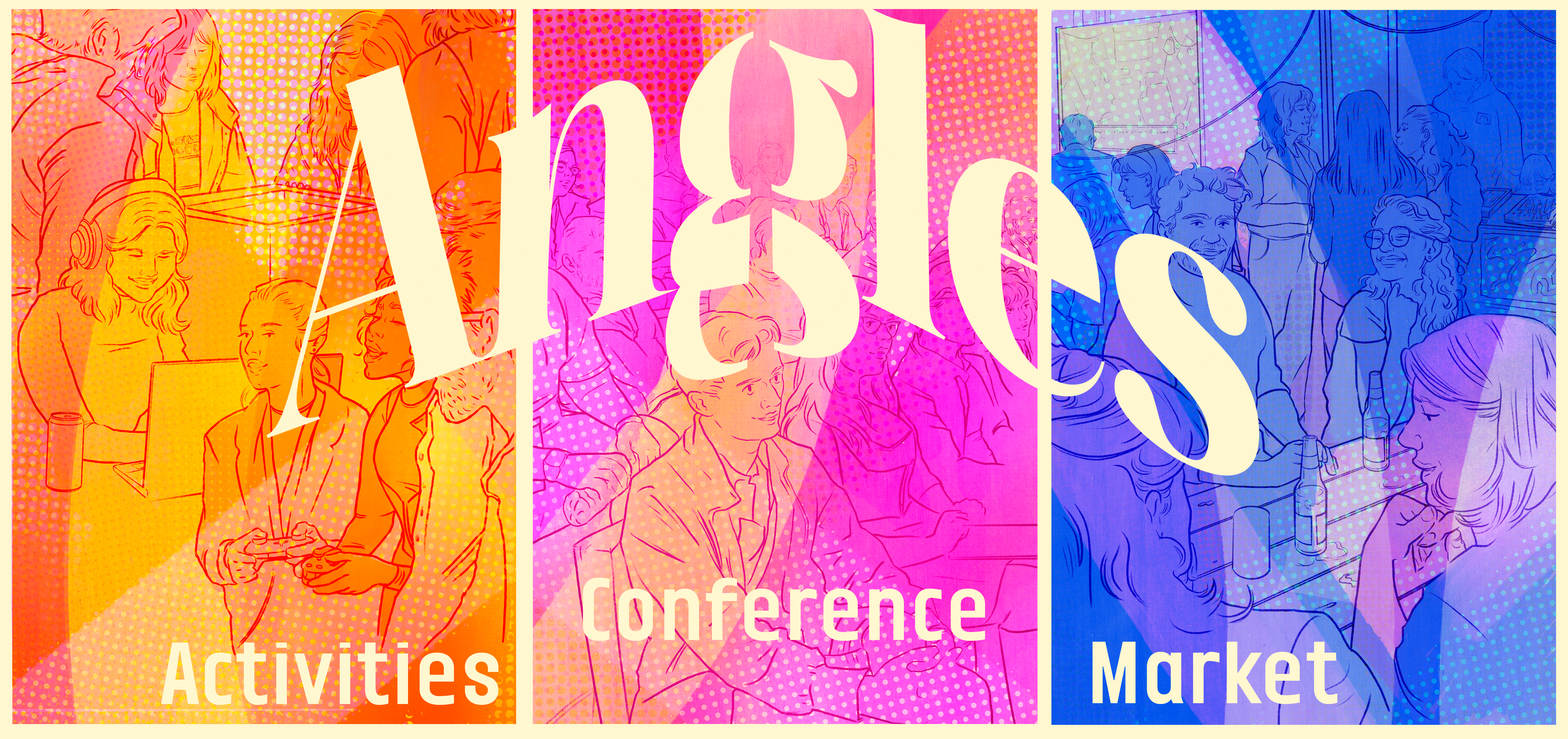
Welcome to Angles!
Freeplay are proud to introduce Angles; a festival for game makers and those curious about play.
Join us over three main events as we examine the interactive medium from all …angles.
Visual Identity by Nina Bennett.

Activities
June 1st
Port Melbourne Town Hall
On Saturday June 1st the Port Melbourne Town Hall will host Melbourne Megagames presenting a locally-designed megagame. Come immerse yourself in play and meet a wonderful local community.
Saturday 10am – 6pm
Megagames presented by Melbourne Megagames
Conference
June 6th, 7th & 8th
ACMI
Bringing together unique and curious talks from a diverse range of speakers, Angles seeks to examine games from academic, creative and experimental approaches.
Featuring keynote talks from Everest Pipkin and Kris Antoni Hadiputra.
Freeplay x ACMI X Works in Progress Night
June 6th
As an extension of ACMI’s wonderful regular WIP night events, this special edition features projects chosen by Freeplay from our creative community.
Games will be available in the Swinburne Studio from 5.15pm. See the ticketing link for more information.
Market
June 8th
The Mission to Seafarers Victoria
The Market caps off our festival with a display of local crafts, artists, zines and games, set in a unique venue with music, food and drinks. A chance to connect with new makers, support each other and have a rad night out, the Markets will feature some new works made specifically for the site.
Note: Conference passes come with a complimentary ticket to Market.
Keynote Speakers
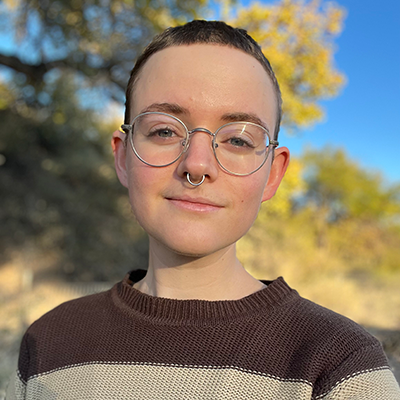
Everest Pipkin
Everest Pipkin is a game developer, writer, and artist from central Texas who lives and works on a sheep farm in southern New Mexico. Their work both in the studio and in the garden follows themes of ecology, tool making, and collective care during collapse. When not at the computer in the heat of the day, you can find them in the hills spending time with their neighbors— both human and non-human.

Kris Antoni Hadiputra
Kris Antoni Hadiputra is a game developer, husband and dad from Jakarta, Indonesia. An advocate for games in South East Asia and founder of Toge Productions, Kris both creates and fosters game making in the region through programs such as the Toge Games Fund Initiative.
About Angles
All this does not mean our format is locked, of course we will continue to experiment and listen to feedback, however our community can rest assured that Freeplay will be here year-round through our pillars of Angles, Parallels and The Awards.
Activities
Melbourne Megagames
https://www.melbournemegagames.com/
What’s a megagame?
Megagames are large, immersive social games. Somewhere between a LARP and a really big boardgame, megagames have elements of negotiation, politics, strategy, and role-playing.
What’s The Ark?
Earth is no longer a liveable planet. In our hour of greatest need, a vessel of unknown origin came to our aid, broadcasting in all languages. Humanity’s best and brightest have set off into the vastness of space on a journey to an unknown destination – hopefully, a new home – aboard the Ark. That was five years ago. The Ark is our home and our responsibility, even if we barely know how it works. If we break it, we die. If it doesn’t produce enough food to feed the people on it, we starve. If we go offship and the Ark leaves, we’re stranded.
The Ark is a game of resource management, intrigue, mystery, factional politics, changing loyalties, and constant crises. Plans are important, but remember, we’re all at the whim of interstellar space. Good luck! https://www.melbournemegagames.com/the-ark
Talks
Ben Abraham - Why the Games Industry Needs a Climate Impact Standard
This talk will describe the main elements of game production and consumption which come with planet-warming greenhouse gas emissions. It will describe the responsiblity the industry has for cleaning up its act, and why a single, transparent and internationally consistent greenhouse gas emissions accounting standard is needed.
Null & Siobhan Dent - Sabby: Love and Survival as an Indie Arts Space
A talk about the realities of creating and maintaining art spaces. Siobhan and Null share their experiences and learnings from running the games event space Sabby Gallery over the last year. This talk aims at examining the nature of art spaces, and why they come and go so frequently while being a useful reference for the wonderful art groups in future.
Covering topics such as:
-The role of art and co-working spaces within the larger games industry
-Managing the moral and inertia of your community
-The unavoidable entropy inherent with organizing people
-The conflicts inherent in surviving during late stage capitalism
-Sustaining business, community and personal health
-Managing a vibe and creating a space where friendships can be born
-And most importantly surviving through love and care.
Emily Reed - Why don't you feel like part of the Freeplay community?
Three years ago I watched the Freeplay Awards for the first time and felt incredibly disconnected from the community, I just did not know where my place in it was, as a non-game dev. Over the years, after a lot lot lot loooootttttt of soul searching, I have realised what it is. To enjoy video games. Both as a medium to be admired, and also as a community to participate in.
So, this talk is going to be to past me, to explain to myself that the people here ARE actually cool and WILL actually want to talk about their games and hear what you thought about them too. And to actually go out and experiment, to take a leap of faith and try something you have no idea if you’re even gonna enjoy. And, I want to give people now, You, feeling how I was feeling then, an example to follow. From one non-game dev to another.
George Mak - Making a Game for my Grandma!
my grandma bought an ipad. i decided to make a game for her.
Brandon Hare - brandon's nice talk
having fun with it
Lauren Temos - The Art of Weird Little Guys
The gremlin, the scrungly little dude, a bin chicken detective, a ghost that cries all the time. These are all weird little guys. But not any character can be a weird little guy. There’s meaning and intent behind the weird little guy. They are a character rife with symbolism, who has a lot to say in very few words. You know who they are, and you’re prepared to embark on their journey.
This talk is aimed at artists and even narrative designers who are looking to find different ways to approach developing and designing interesting characters. We’ll break down a design process that on the surface seems simple but features a lot of underlying complexity in just 6 beats.
There are a lot of endearing and quirky characters I’ve created both in writing and artistically in my games career, but there is depth in those characters that I’ve found a good and fun process to channel.
Barch - How to create Game Dev Tools for Players. Why Modding Matters.
Join BARCHboi as he explains how to build game development tools that bring your audience into the creative project. Allowing your players’ voices to be part of the creative process. In this talk, Barch will guide you through how modding in games and opening up the tools has always been a win-win for bringing in unique experiences and allowing your audience to extend the life of your project. Barchboi will guide you through how to implement and incorporate tools into your next project and why bringing players in matters.
In this talk, Barch will delve into modding in games, how modding has kept games alive for longer, and how users have maintained games as platforms for expressing themselves, forming communities around maintaining games that are several years old. By opening up your project to your audience, I’ll make the case for why it’s easier than you think. Barch will go through various media from KiSS dolls, Morrowind modding community, Furcadia, and more, and show how he has implemented the methods from those into his own works and the results he found.
William Hinz - Okay but how, actually? The parallels between Theatre and Games
A short and sweet incision to a phrase you’ve maybe heard: “theatre and games are so similar!” But are they? And if so, how so? Where do they run parallel? Where do they diverge? And what might they learn from each other? Quickfire tackling theatre’s history, pipelines, and practices, let’s get a little clearer grasp on why some folks see it with such affinity, and how that knowledge might inform your own practice.
As a narrative designer with a ten year background in theatre, William is deeply fascinated in what methodologies they do and don’t see replicated in game development (and vice versa). This talk will be a short, sweet, yet intentional interrogation of an idea that’s often only discussed at surface value.
www.william-hinz.com
@willofthehinz
https://linkedin.com/in/william-hinz/
Samara-Jade Sendek - Queerbaiting: Once Bitten, Twice Shy
It’s an hour-long breakdown of what a queerbait is, how to identify one, assorted deepdives into different kinds of queerbaits, and the consequences of bad queer representation. Finally, the talk caps off on who got it right and when. Even though the tide is turning towards genuine queer representation, we’re still getting it wrong: one need only look at the buried gays and cookie-cutter enby in the Amazon-hosted Fallout series.
So let’s keep building the bridge to tasteful, accurate representation.
Saf - Bridging the Gaps
It’s easy to get lost in the weeds when worldbuilding and designing early narrative, and some frameworks only lead to more unnecessary complexity. Sometimes it’s better to be lazy—that’s how you get efficiency. Bridging is about finding the vital anchor points of a story as you build, then constructing a flexible framework around those points to create a lightweight, adaptable narrative that spans management woes, collaboration, complex branching, your own mind, and more. This talk will break down the concept and utility of bridging, and explain the incredibly simple process. Why do more, when you can do less, better?
Marigold Bartlett & Jennifer Lade - My Granny/Nona/Bibi says... Cultural Authenticity through Storytelling in Games Design Education
Dr. Jen Lade and Marigold Bartlett have designed and delivered a class called ‘Creative Practice’ for the incoming batch of undergraduates in RMIT’s game design degree. We will discuss what we teach, why, and the outcomes we are hoping for.
New technologies (AR, VR, AI etc.) are presented as a panacea for the world’s problems. We question a blind faith in technological solutions and concentrate on the value of a more nuanced approach where storytelling in games education presents the diversity of human experience and responses to how to deal with change.
Cross-generational storytelling is central to our course, as is the development of respect for cultural identity. We view these intents as the base for individual and group creative development. At RMIT we believe Games education is not just about teaching the software for games engines and methods of production, it is about owning your own authenticity and considering the social, cultural and personal connections between game makers and players.
Students should not default to the current zeitgeist, they need to explore their context with explicit intent. Students learn the value of looking beyond shibboleths and universal appeal, and learn how to tell stories which have deeper themes.
Jen and Marigold will open a discussion with the audience enthusiastically inviting questions that relate to respect for, and understanding of, cultural connections from diverse angles.
Serenade - Serenade: Celebrating games from the Fringes
Serenade is a DIY collective that puts on popup showcases sharing art games, experimental games and digital literature with the world. Serenade is Cuauh Moreno, Duncan Corrigan, George Mak, Jae Stuart, and Kaveh Tabar.
Previously Sydney has been mostly known for commercial game development. DIY collective Serenade was formed to create spaces for other kinds of games. What happened when we brought art games and experimental games to a city with a limited and fragmentary history of alternative game culture?
We’ll cover our journey from our inspirations around Australia and worldwide to hosting our first event and the road there including false starts, developing and refining our identity as a group, curating game line-ups, making an event happen, and the simultaneous conveniences and profound limitations of operating as a DIY collective.
From there we’ll discuss how Serenade evolved over subsequent events and collaborations. We curated several games spaces to accompany film festivals, helped host a launch party for Queer game developers Fuzzy Ghost, curated a showcase for SXSW Sydney and even ventured into interstate events.
We’ll talk about how building relationships with other artistic collectives has led to fruitful collaborations across mediums including film and poetry and how we’ve found engaging with and reaching out to communities outside of game development. Bridging the insular world of game development and other artistic practices can be challenging, but magic can be found where they meet.
https://serenade.games/
@serenadegames
https://www.instagram.com/serenadegames/
Duncan Corrigan - Sparking Playful Ambition
The mainstream video game marketplace perpetuates an ideological concept of play that is necessarily commodified, precipitating the popular idea that the practice of play is constituted by our engagement with external artefacts. That is to say, we are led to believe there is no play without a game. In this spirit, we may over-attribute the necessary conditions for play to formal structures such as video games; and tie our rituals of play to capital-driven agendas.
However, video games aren’t playful, people are. This talk argues the importance of this acknowledgement in reframing the role of games and by extension our design of them. Rather than striving to further consolidate on the fidelity of games, we should perhaps instead focus on our players and how our games might serve as inspiration to spark their playful ambitions. Additionally, this talk explores how our games may aid players in interrogating their ideological concepts of play and recognise their capacity to create meaningful experiences more often and in more places. Ultimately, leading to a culture that feels less trapped in existing structures, and one that has the autonomy and compassion to reshape the world and our lives for the better.
Max Myers - Game Design outside of "Game Design"
What kind of games don’t we talk about as “designed”. What experiences are made by people to be played, but aren’t part of our general lexicon? A tour through design outside of board, roleplaying, and video games – from the design of a good hike, an accessible hike, route setting in a climbing gym, slalom kayaking courses, playground and folk games – even the games that seem embedded in our culture are designed, so let’s see what we can learn from them.
Terry Burdak - How To Get Rejected
For the last 18 months, Terry pitched the game Wood & Weather to as many different publishers and funding bodies that would listen. He was rejected by all of them.
In the talk, Terry will present all of Paper House’s pitching material that was created over the year in a desperate attempt to chase the dream.
Helen Kwok - Making Games and Art when the World is Falling Apart
The world has been going through turbulent times in the last eight months. From the climate crisis to increasing racism and violence, institutional censorship to witnessing a genocide unfold before our eyes, everyday can be a rollercoaster of emotions. As artists and gamemakers, how do we deal with such intense emotions within our bodies? What can we do if the organisations that fund us are complicit and compromised? How do we keep making meaningful things when the world is falling apart? This talk is more about raising questions and provocations rather than providing answers. As the speaker herself explores these challenges, she invites the audience to do the same.
Nathalynn Dhamabutra - Architectural Approach for Game Assets Design
Nowadays, the border between architecture and interactive media such as video games has been blurred and there are bridges which connects between these two practices.
By implementing architectural principle, design language, tangibility, scale and circulation, we can use those ideas to collectively design game levels in both 2D and 3D spaces. With an implementation of various techniques such as photogrammetry, texture mapping and 3D modeling in Blender we can create an immersive environment which requires low computation for level design.
Hugh Craig - Making millions of tiny games (and releasing them into the wild)
A talk describing my experiences with making a whole bunch of small and not necessarily complete games, and releasing them online (and in a few showcases). As well as going through a rough timeline of some of my own projects, I would discuss what I’ve personally learned from doing things in this manner, and how that could be applied to other game development/developers.
Lou Fourie - Cursebending
My talk is about methods for embracing errors and unexpected behaviour of digital objects that are commonly encountered in a pipeline process. I propose an approach that turns the bugs into features to create a digital reality in collaboration with the systems I interact with. My practice is primarily focused on animation for games. I have developed an approach to animation that values the unique and specific behaviour of digital objects above notions like believability and realism. In this talk, I will draw on ideas from object oriented ontology and theories of play, to propose turning the grind of a digital creative pipeline into play, and using digital tools more like toys than a means to an end. I will present these ideas by showing examples from a game I am currently developing, called “Dance Dance Deception”, which has been my research-in-practice for investigating these ideas.
Xavier Ho - The Wild Side: Furry Characters in Games
Queer and trans experiences are traditionally underrepresented in media, and games are no exception. We know games are powerful storytelling vehicles that carry characters and narratives through interactive and social play. This talk will explore a fuzzy side of games: anthropomorphic, human-like animal characters who caught the attention of a worldwide community known as the furry fandom. Why do some games prominently feature animal characters, and what physical, social, and cultural qualities do they bring to games? How can we build on animal characteristics that enhance fictional storytelling that feels rather real? What senses are expanded through furry that could tail toward a broad and diverse audience? The content of the talk is drawn from research interviews of my nascent book project on queer game design I started this year, and is guided by my own personal experiences of being a part of the fandom of over 15 years. I will share a preliminary finding and insights to explore the furry side of queer and trans game studies.
Lise Leitner - Weird little guy: harnessing your differences to bolster your creative practice
Often, people will expect game creatives to have completed formal training that led them to a career in games. For many people, if not most people – the path into games is a windy one. As a writer, a (relatively recent) migrant, a non-native English speaker, and a queer person, my journey into games didn’t follow a straightforward trajectory. I never felt like a “true” game developer. If there was ever a term that I felt did capture my creative journey, it was mostly just me being a weird lil’ guy, which is great, but maybe not great to put on a CV.
However, over the course of my career I’ve found myself doing different types of games work – writing, localization, PR, and marketing – and currently I’m working as an arts manager in games. Throughout this journey, I’ve come to appreciate the weird lil guy energy this trajectory has offered me, and I’ve also found ways to channel these different perspectives into useful lenses for my writing and design processes. In this talk, I’m keen to share some of these lenses that I’ve used in my work in case other folks might find them valuable too.
Panels
Gamemaking with Screen Australia Funding
1 hr.
Chad Toprak, Jae Stuart, Matthew Jackson & Maddy Clute
Join Screen Australia for an insightful panel discussion on games funding with some of our funded gamemakers. Hear firsthand the unique stories and experiences, successes and challenges, do’s and don’ts, and the realities of making games and seeking games funding. The panelists will discuss how funding has shaped their journeys, how it’s enabled further opportunities, and what advice they would give to future applicants.
Play About Place
1hr.
Troy Innocent, Aramiha Harwood, Uyen Nguyen, Kel Glaister
This panel explores new approaches to placemaking through the development of urban play projects led by Indigenous practices that connect with and entangle knowledge with place. Cases studies discuss affordable and engaging experi-ences that activate existing public spaces, a typology and methodology for analysing the impacts of urban play, and a comparative study of urban play in Narrm/Melbourne and Ōtautahi/Christchurch. Impacts of these projects include First Peoples storytelling experiences, city activation post-pandemic, community engagement, and the potential of ‘creative placemaking’ to make cities more inclusive and resilient post-pandemic.
Considered within the relationships between urban design and urban life, these methods provide another approach to disrupting and critiquing public space. Considerations of the world building capacities of games and intersections with urban play are central to the hybrid practice of ‘reworlding’. Reworlding is speculative and relational world building, focusing on nurturing and developing existing patterns in culture, the environment, and society; evolution over revolution.
Industry and Identity: Examining Transitional Change
1 hr.
Leena Van Deventer, Meredith Hall, Darcy Smith, Pritika Sachdev, Vidya Rajan
We talk a lot about industry change and transition, and far less about personal change and personal identity within that space. This panel will explore the seismic shifts in understanding of self as we move through different roles and perspectives in our careers. We’ve built (some) good systems for connection and belonging around personal identity, but our broader structures often default to like ‘they are X FROM place’.
When you move on from a role that has become entwined with your identity, that can be jarring to personal identity, cause shifts in how people treat you, and can challenge our other systems around connection and belonging.
Transitioning in or out of these visible roles, or the inherent desire in our industry to be in one can be deeply challenging to ones sense of self, and this panel will explore those transitions, as well as coping mechanisms and strategies for building better senses of self separate to our work identities.
The Digital and Interactive Art Scene Outside of Videogames
1hr.
Ruby Quail, Vidya Rajan, Mel Huang, Monica Lim
A discussion among interactive artists, designers, technologists, and community organizers who create works similar to, but not classified as, video games. This panel aims to explore the commonalities and differences between video game development and other new media and art practices. We will delve into the future trajectories of these areas, discussing potential developments and trends. These artists will share their insights and predictions on the direction of interactive art and how interactive art communities and video game development communities can work together.
Workshops
Chickenosaurus; an experimentation into play for all-ages
Mel Huang, Bern Hall and Jesse Chambers
Led by Science Gallery Melbourne’s Bern Hall (Assistant Curator), Mel Huang (Academic Fellow, Art & Computer Science) and Jesse Chambers (STEAM Learning Delivery Manager), this hybrid drawing/workshop/presentation will illustrate how we created a 3D-printed bone graveyard education program to make cursed animals, an AI-powered experience to animate dancing franken-creatures and a curatorial vision that championed the act of drawing.
The Chickenosaurus project – part of the Not Natural exhibition – is an experimental immersive play area, where visitors are encouraged to draw their own chimera creature to animate and display in the gallery. There are plenty of creative spaces and play areas for young children in museums and galleries; but what do these spaces look like for people aged 15 and up?
Enter a world inspired by the fictional (maybe soon to be factual) idea of the chickenosaurus: a theoretical experiment to reactivate ancient dinosaur genes in modern birds.Take part in the experiment as we bring the Chickenosaurus experience to Freeplay! Together, we will draw, scan and animate our own chimeras whilst exploring how one seed of an idea grew into a series of multidisciplinary programs and initiatives to further explore the very serious topic of genetic engineering in animals.
melbourne.sciencegallery.com/not-natural-exhibits/chickenosaurus
Character Design and Cosplay: Breaking Down the Appeal
Lal
Have you ever been on the internet and seen someone say something like “wow, those designers hate cosplayers!”… paired with a picture of a sick looking character? I’ve seen dozens! But what about the character designers that love cosplayers – the ones that have dozens of people dressed up as their characters at an event? What’s the draw? What makes someone look at a character and go ‘yeah I’m going to spend hours of my life working to dress up as this character’?
Putting on our maker hats, this workshop is going to focus on doing a deep dive into what makes different types of character designs appealing to cosplayers, and how they might interpret design elements into the physical space.
THE INCIDENT: An Experimental Game Jam
Cecile Richard
Something has happened in Melbourne. A mysterious Incident, with intriguing details and qualities the likes of which irresistibly compel you to make a game about it. To find out more about this Incident, come along to this esoteric game jam hosted by game maker and writer Cecile Richard. Note that while the theme may seem like it lends itself more to narrative games, you really can make whatever type of game you want, as long as it’s about… the Incident. Coding experience useful but not obligatory for participation. Bring your own laptops.
Social Change (The Boring Way)
Travis Jordan
Market Stalls
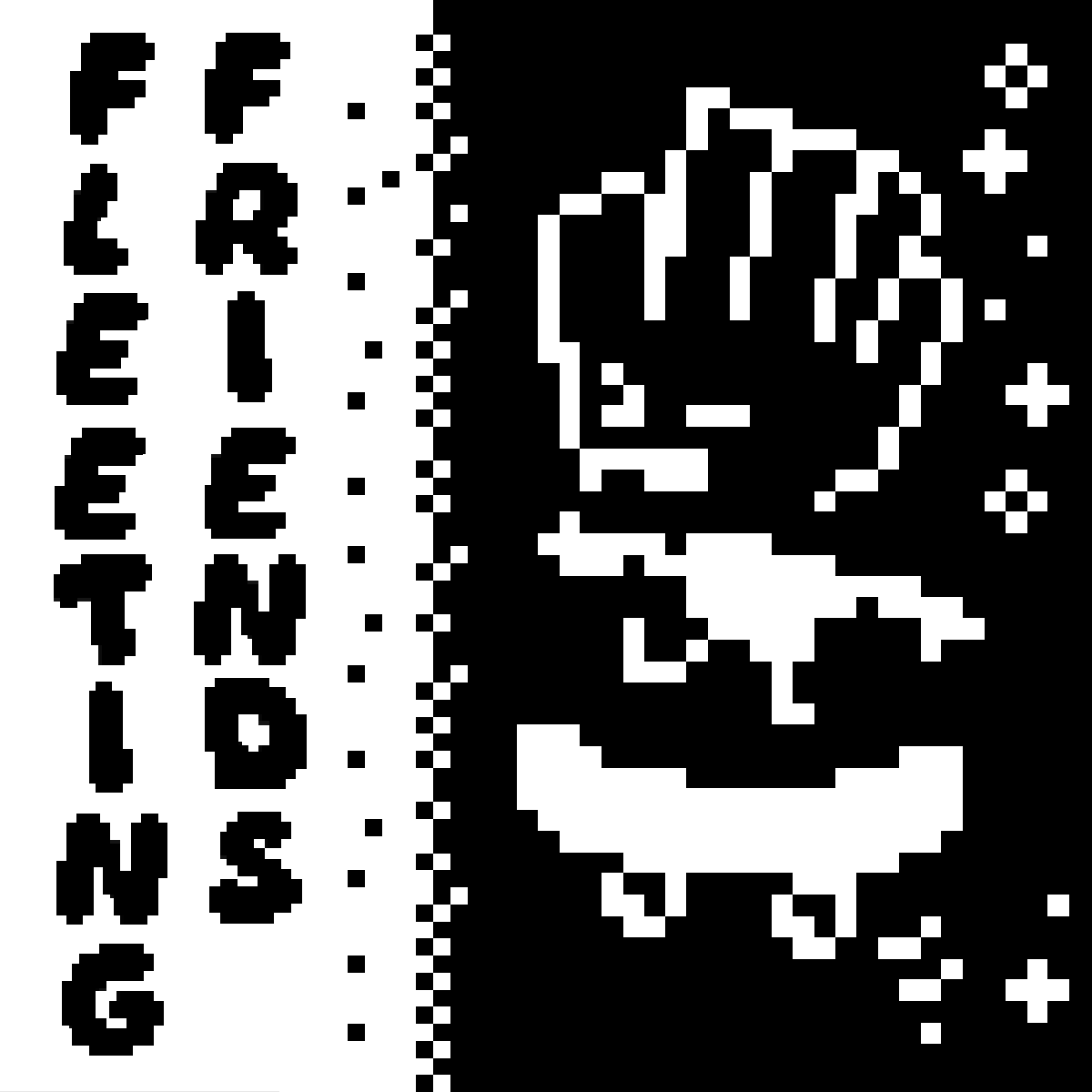
Fleeting Friends
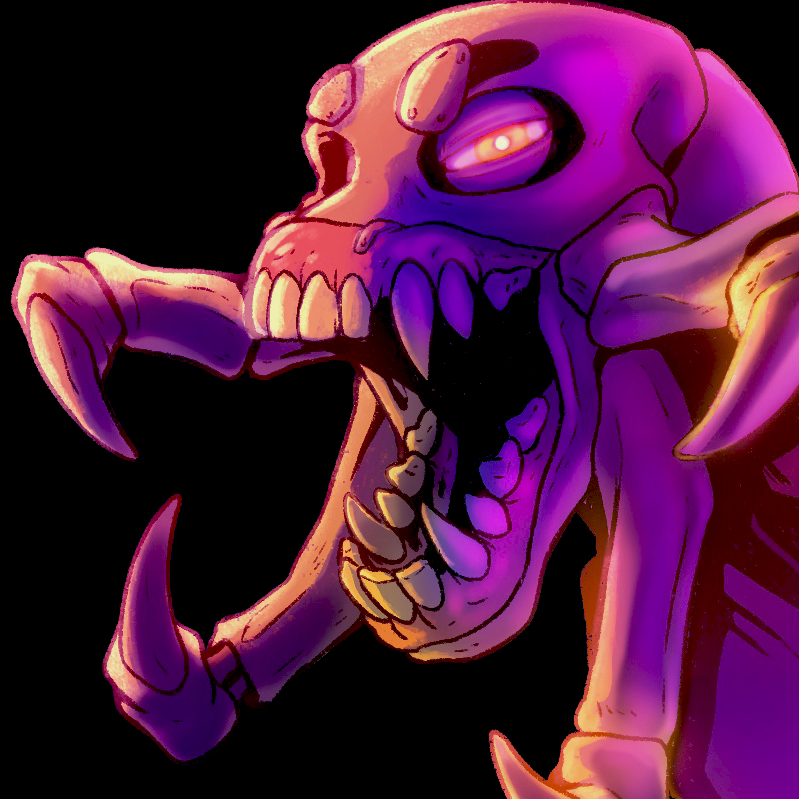
Pretty Fly for a Shy Guy

Tim Sta-Ana
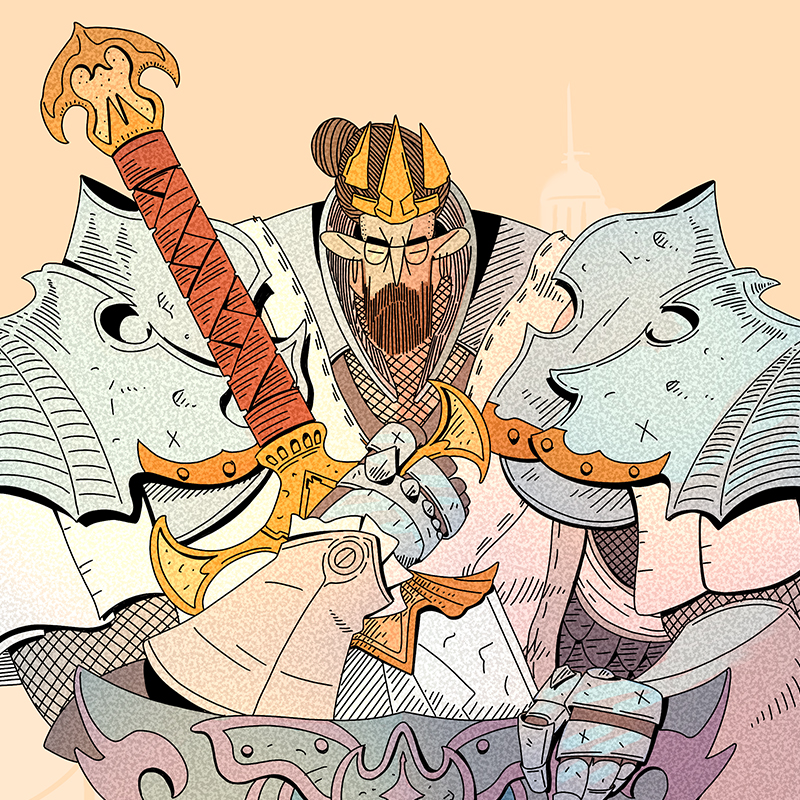
Brendan Foley
tastyeclairr

V2S Games
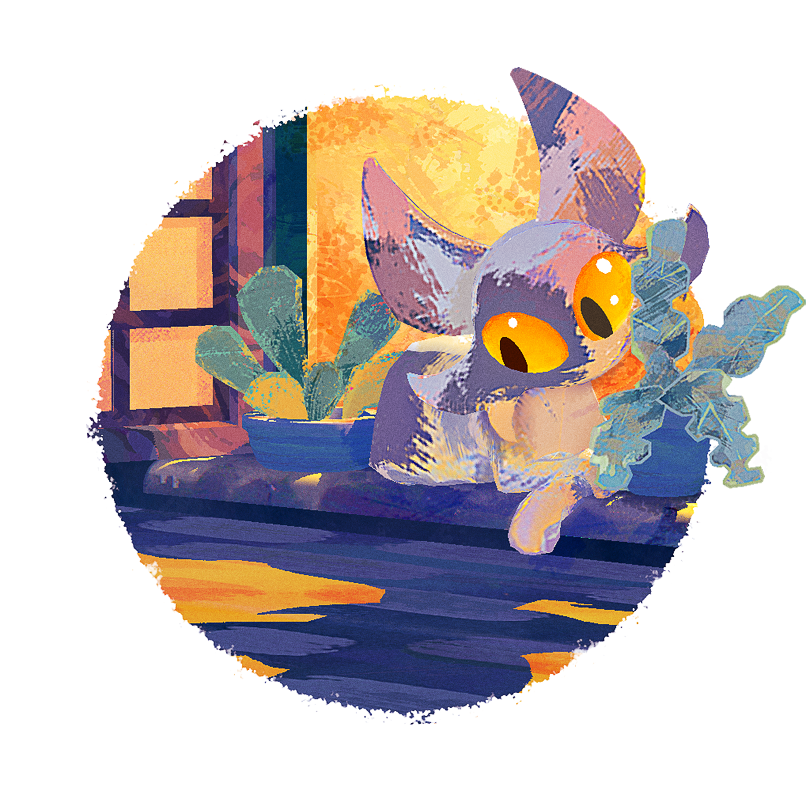
Creature Frame
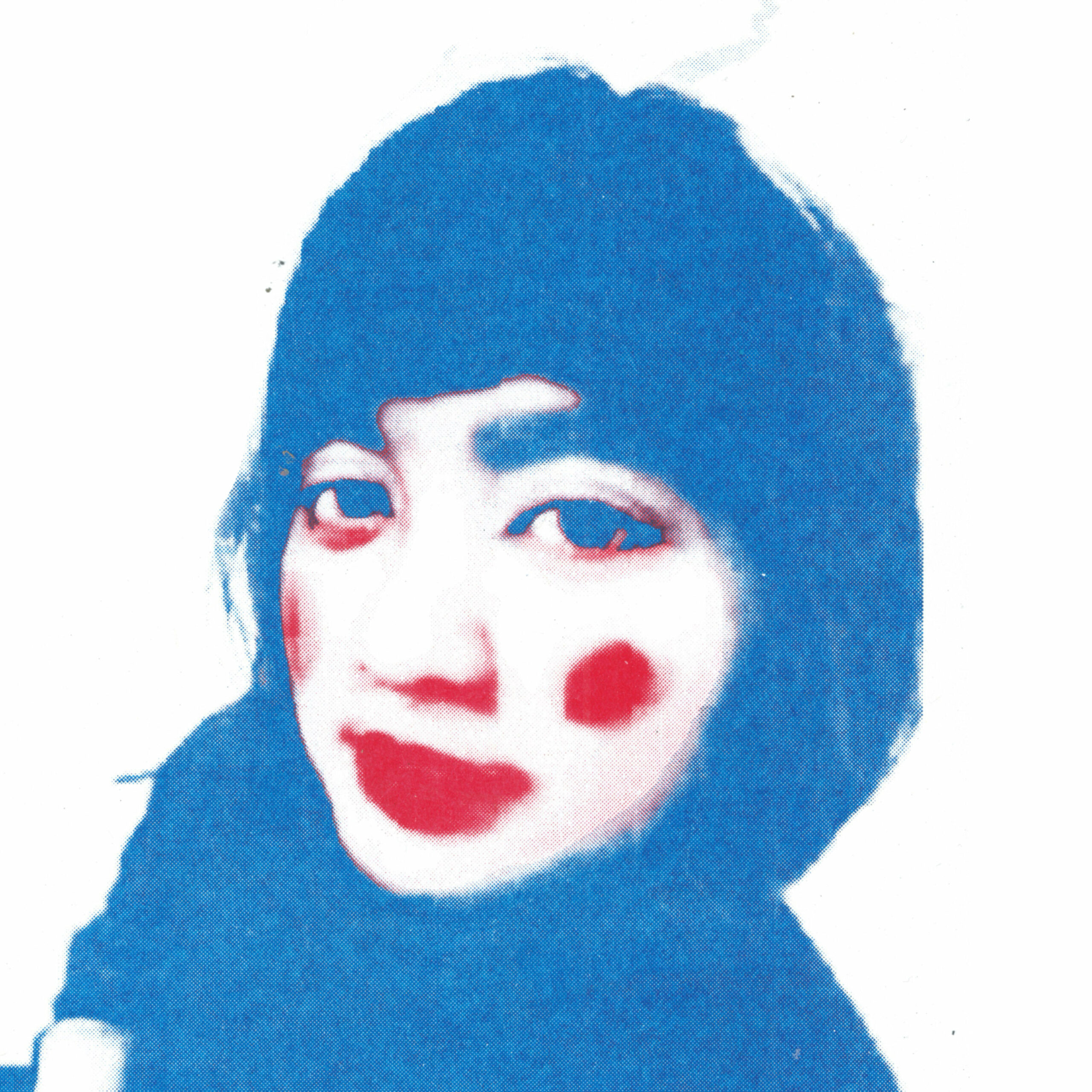
Sunny Tandoc
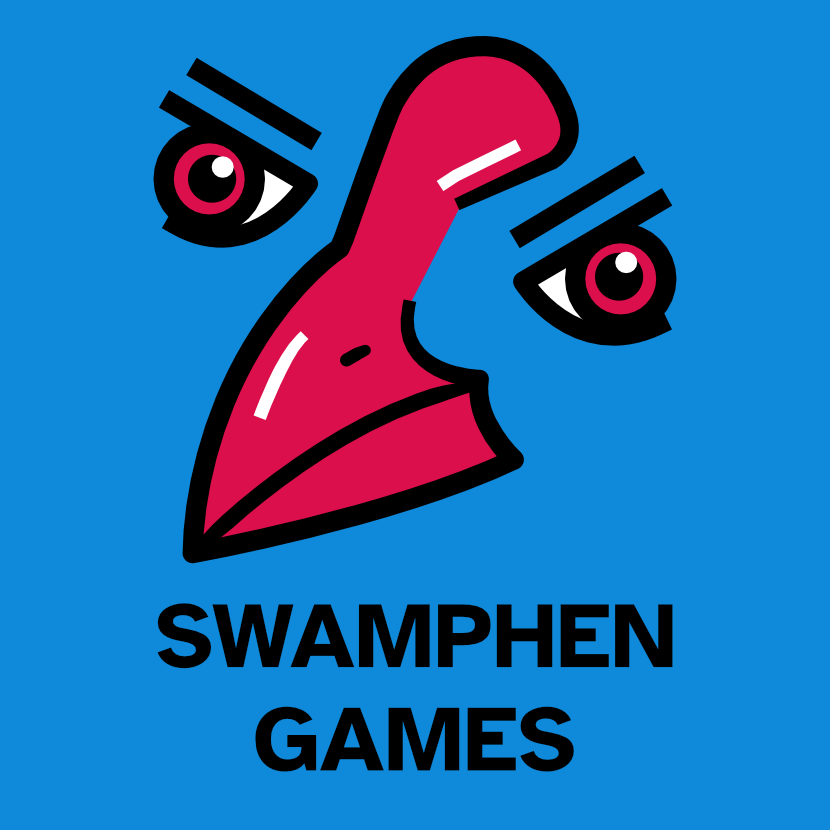
Swamphen Games

Sabby Gallery Zine Club
Beeflover1
Freeplay acknowledges the Wurundjeri & Boon Wurrung people of the Kulin Nation as the Traditional Custodians of the Lands upon which the festival takes place.
We pay respect to their Elders past and present, and to all Aboriginal and Torres Strait Islander people in the wider community and beyond.
Sovereignty was never ceded, and this always was and always will be Aboriginal land.


